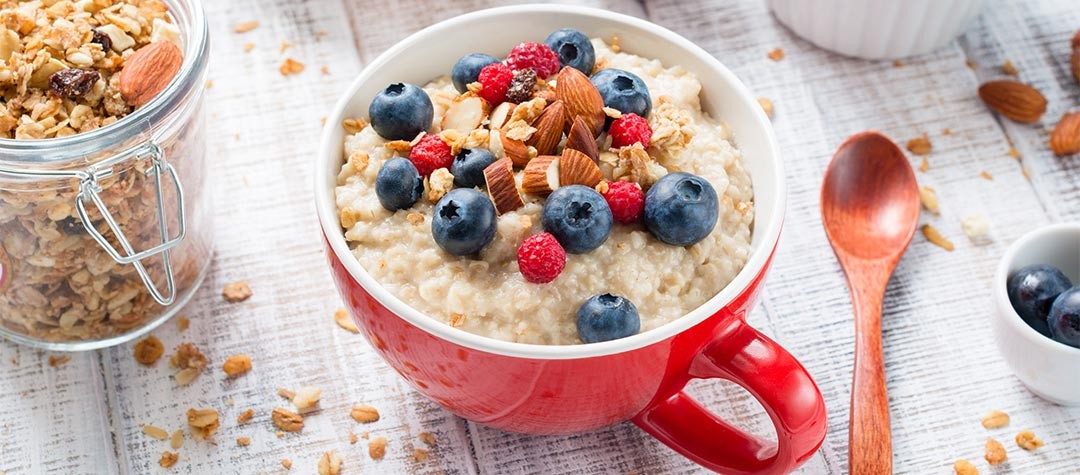Keeping a balanced diet is essential for a healthy lifestyle. Here are 10 ways to improve your diet without you even noticing.
1. Always eat breakfast
After fasting all night, kick-start your body's engine with some good quality food. If you ever feel lethargic in the morning, or skip breakfast and are ravenous by 10am, you will feel 100 per cent better if you have some food when you get up. Top of the breakfast options is porridge, perhaps topped with some fresh or dried fruit, as it will provide you with sustained energy and cancel out the 10am 'munchies'.
2. Go for '20 per day'
Try and eat 20 different, healthy foods each day to ensure that you are fuelling your body with a broad range of different nutrients. A diet rich in variety will guarantee that you are getting the full complement of vitamins, minerals and trace elements - and will make your meals more interesting too. Try introducing two new foods to your shopping trolley every week.
3. Stay hydrated
Symptoms of dehydration include unusual fatigue, dizziness, hunger, dry skin, dark urine and general lethargy. When you consider that the majority of our bodies are made up from water, topping up your body's fluid intake with water and natural fluids (for example: fruit juice) is extremely important.
4. Plan your meals
Write a shopping list and stick to it - this aims to banish your bad eating habits and stops you from giving into your cravings. Also, never shop when you're hungry, as this is a fatal error that inevitably leads you to stuffing your shopping trolley full of junk!
5. Eat protein with complex carbohydrates
Combining these food groups in the correct proportions will ensure you receive a steady flow of energy, as the body converts foods relatively slowly into glucose. You can then avoid triggering insulin production therefore minimising the potential for your body to store food as fat.
6. Use the 80:20 approach
It would take a superhuman to follow a perfectly healthy diet all of the time and it's absolutely acceptable to 'stray' every now and then. Try to keep up your good habits at least 80 per cent of the time, allowing you to stray for 20 per cent. This approach allows you the flexibility to enjoy life without being too restrictive, but still helps you to adopt healthy habits for the majority of the time.
7. Add some exercise
Like it or not, exercise and a healthy diet do need to go hand-in-hand if you want to get results.
As a minimum you should be aiming for 30-minutes of exercise three times a week. But remember cleaning the car, the house or even the dog can contribute to your daily quota; if it makes you slightly out of breath and sweaty - you are working your heart and lungs.
8. Make time to eat
If you allow the time to savor and enjoy your meal it's not only more beneficial to your digestive health, but it will also allow your body the time to recognise that it's full. It takes around 20 minutes of eating before the body begins to feel signs of satiety, so make sure you take the time at every meal.
9. Avoid eating late at night
Many people have an 'end-of-day load' approach to their food intake, sometimes eating a large evening meal at 9pm, having eaten very sparingly throughout the day. Effectively they have starved themselves during their period of maximum activity and when they get home they are extremely hungry and eat a very large meal before going to bed.
10. Avoid sugar
Where possible try to avoid sugary foods. The best way to reduce your sugar intake is to do so gradually, weaning yourself off so that your cravings subside. By taking simple steps and being vigilant about ingredients, you'll see the benefits in no time.














